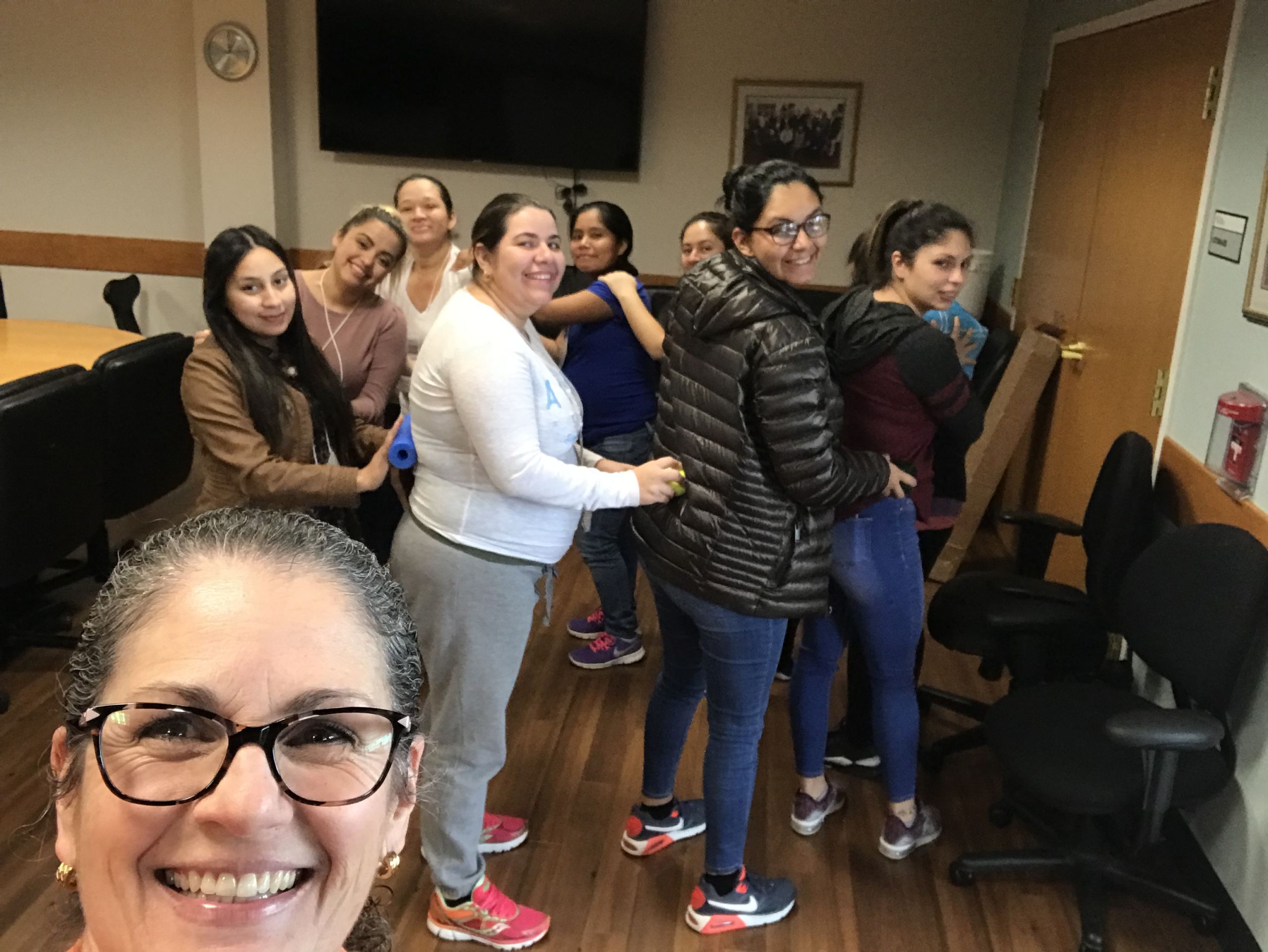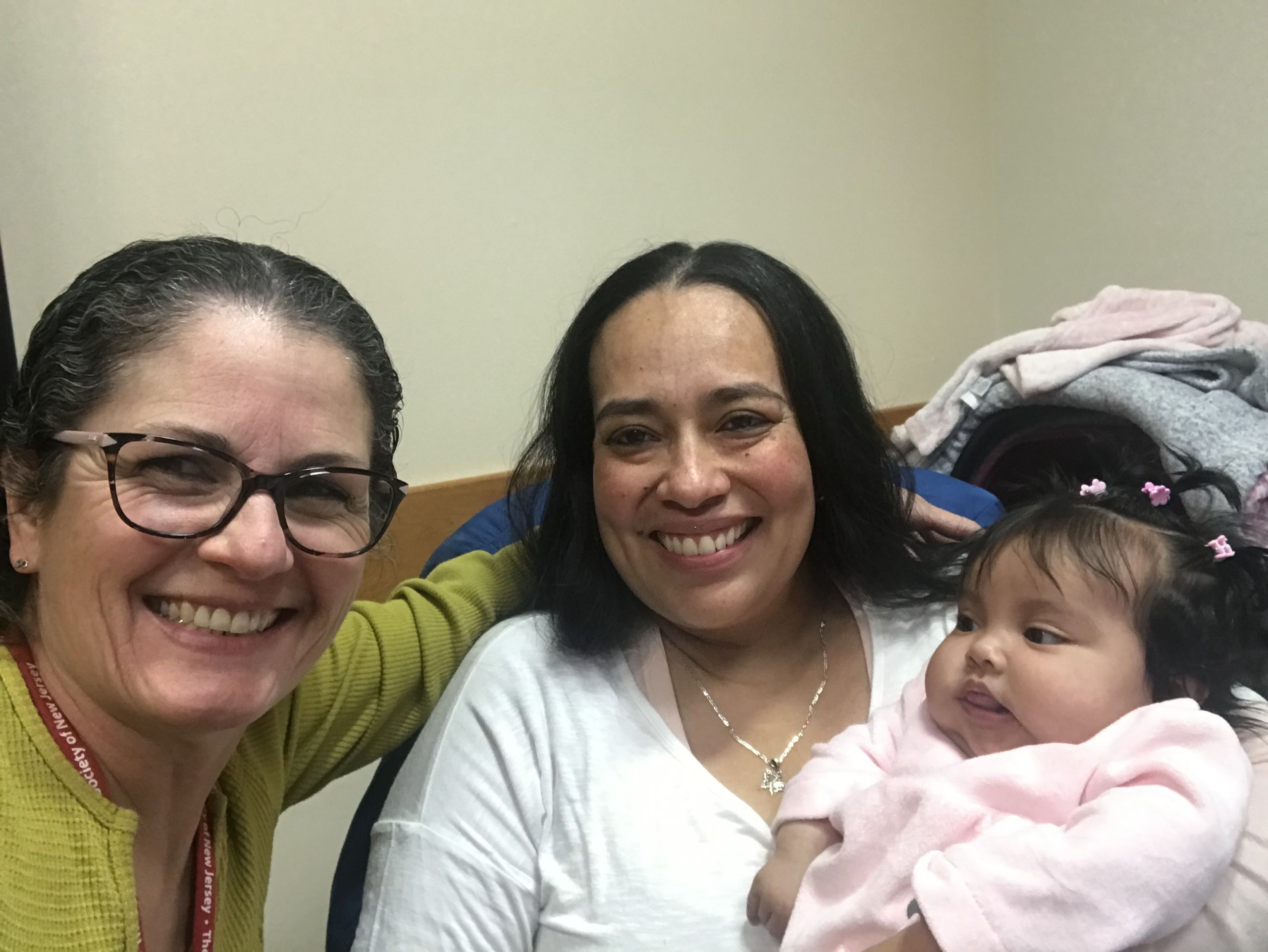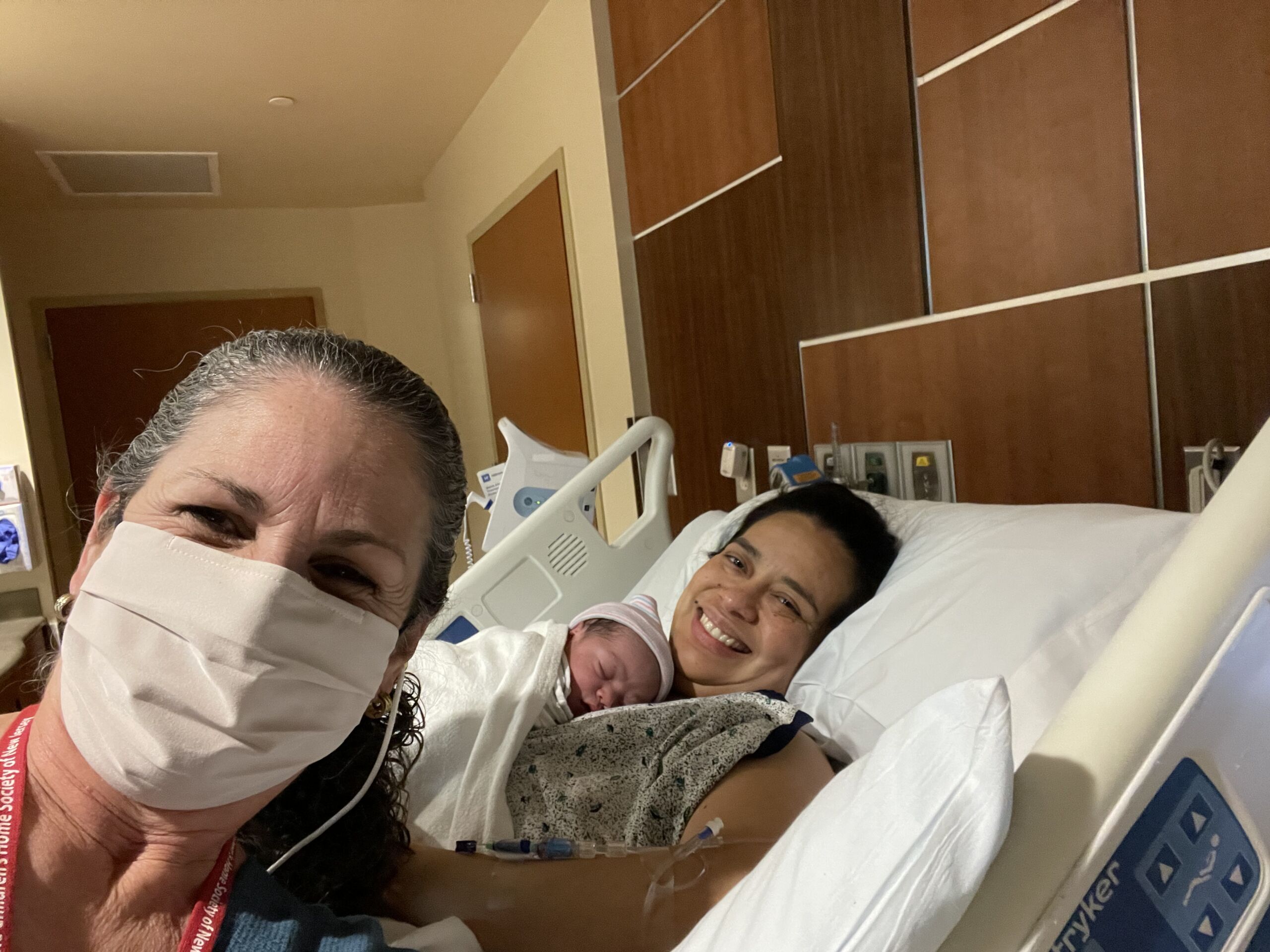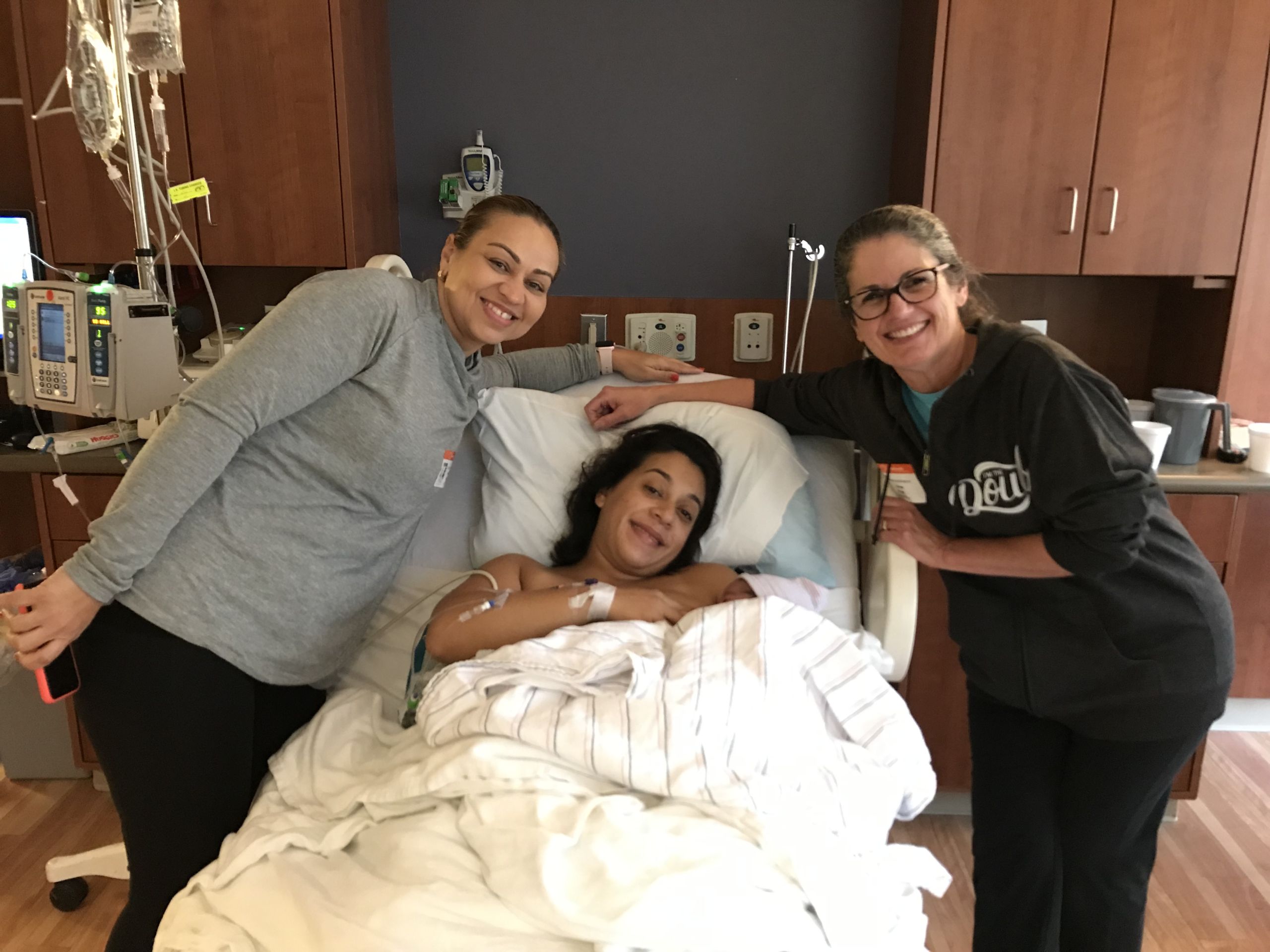FIRST 1,000 DAYS CORE STRATEGY SPOTLIGHT
Growing New Jersey’s Community Doula Workforce to Advance Perinatal Health and Wellness
“More than just a group of doula trainees, after these 20 weeks, we became more of a sisterhood of brave, strong women — and for that, I am eternally grateful.”
— Cindy Cortez, AMAR doula training graduate
Our vision: An expanded and sustained community doula workforce informed by those with lived experience
To help those facing some of the greatest health disparities, the Burke Foundation is expanding and diversifying New Jersey’s perinatal workforce by 1,000 community doulas. Doing so will bring quality, strengths-based, respectful, culturally-congruent maternity care via trusted messengers to more families. It will also create workforce opportunities in under-resourced areas that will have a ripple effect on social and economic well-being at the household and community levels.
A larger community doula workforce is needed to combat the maternal and infant health crisis, especially in communities of color and especially when nearly two-thirds of pregnancy-related deaths are preventable. Right now, New Jersey has the capacity to serve a fraction of the estimated 30,000 women enrolled in Medicaid who deliver babies in the state.
We will approach this effort in partnership with community doulas and engage them as early as possible to inform this initiative. Their unique perspectives will help design a web of training supports and workforce expansion plans centered on their needs, lived experiences, and preferences.
On the ground in Trenton and Paterson
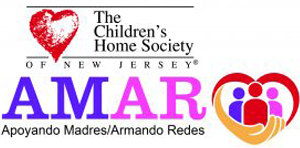
Since 2019, the Children’s Home Society of New Jersey has run one of the first community doula programs in the state that focuses on Spanish-speaking women. The AMAR Community Doula Program uses an evidence-backed model developed by HealthConnect One, a national leader in advancing equitable, community-based, peer-to-peer support for pregnancy, birth, breastfeeding, and early parenting.
Community doulas complement clinical care by providing tailored emotional, physical, and social support as well as education and guidance during pregnancy, childbirth, and postpartum. While not clinicians, they are trusted peers who navigate language and cultural barriers, serve as liaisons between clients and healthcare providers, provide connection to such vital local resources as food and transportation, and empower mothers to gain the confidence they need to effectively advocate for themselves and their babies.
The AMAR team, which employs two full-time doulas, a doula supervisor, and three per-diem doulas, serves about 70 Spanish-speaking families each year in Mercer County, primarily in the city of Trenton. Beyond serving families, so far AMAR has grown the local doula workforce by training 23 community members in the HealthConnect One model. The program’s impressive results underscore the difference that community doulas can make in communities of color:
- 73.0% fewer preterm births
- 74.7% fewer low birthweight babies
- 62.5% fewer low-risk C-sections
- Over 65% of mothers are exclusively breastfeeding at 3 months postpartum
The Burke Foundation supports the AMAR Community Doula Program with these partners: the Princeton Area Community Foundation, New Jersey Department of State’s Center for Hispanic Policy, Research & Development, and Safer Childbirth Cities.

Inspired by the promising results we saw in Trenton, Burke joined the Turrell Fund and the Henry & Marilyn Taub Foundation to launch a community doula pilot in Paterson. A pool of 11 “train-the-trainers” – a combination of partner organizations and community members – learned the HealthConnect One model, which can grow the doula workforce over time. Next, the Partnership for Maternal & Child Health of Northern New Jersey will train 10 local residents and hire two of them as full-time doulas. Other key local partners are the New Destiny Family Success Center and St. Joseph University’s Medical Center.
“The doula program is more than just a maternal health solution. They are truly the custodians: they have the expertise, and the competency. I think that has been an “ah hah” moment for me – it’s more than addressing maternal and infant health. It truly is about lifting up a community.”
– Lisa Asare, Assistant Commissioner, Division of Family Services at the New Jersey Department of Health
Articles
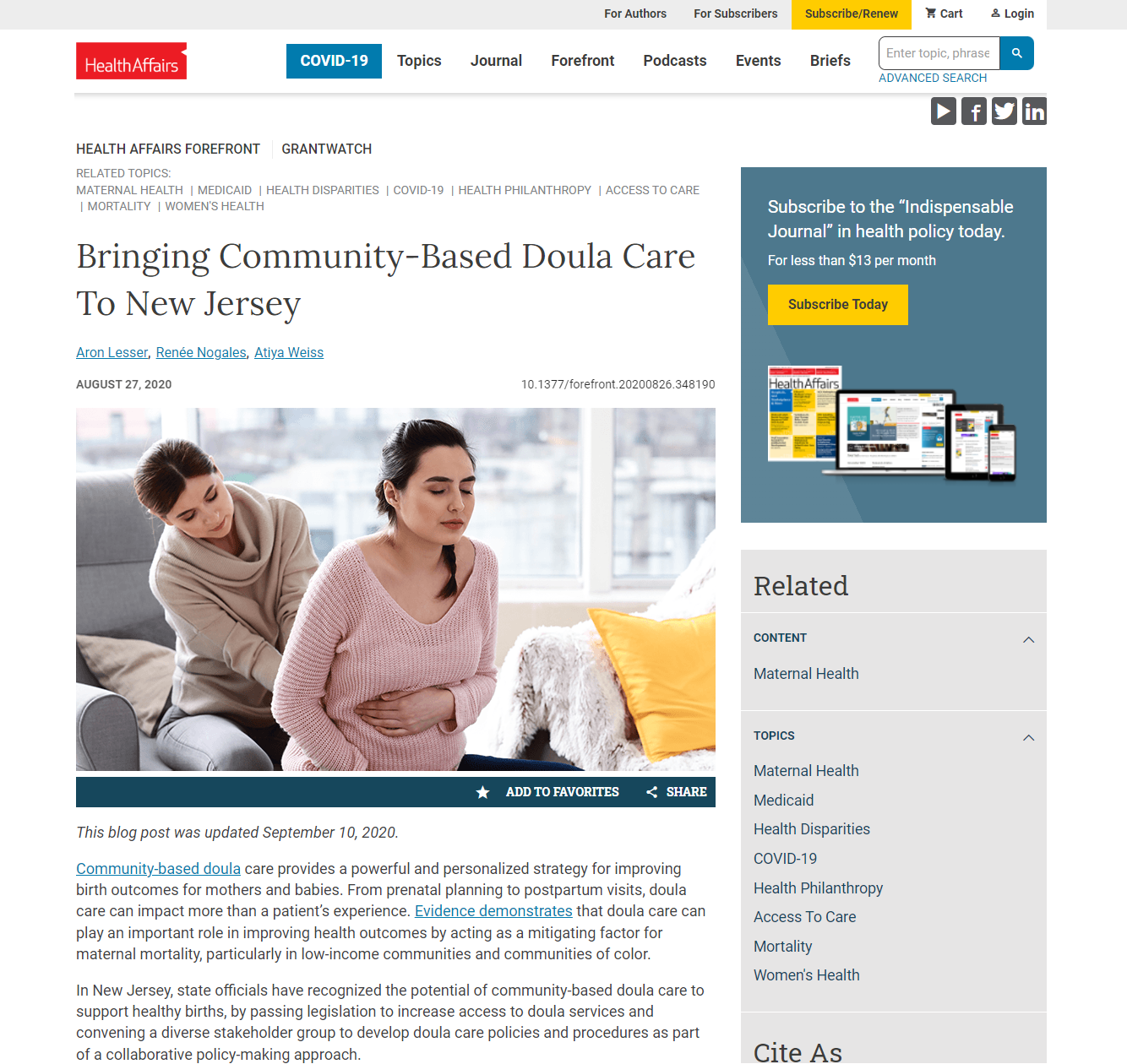
Bringing Community-Based Doula Care To New Jersey
Learn more about the huge impact that community doulas make in our article, Bringing Community-Based Doula Care To New Jersey, a 2020 top-five blog post on Health Affairs GrantWatch.
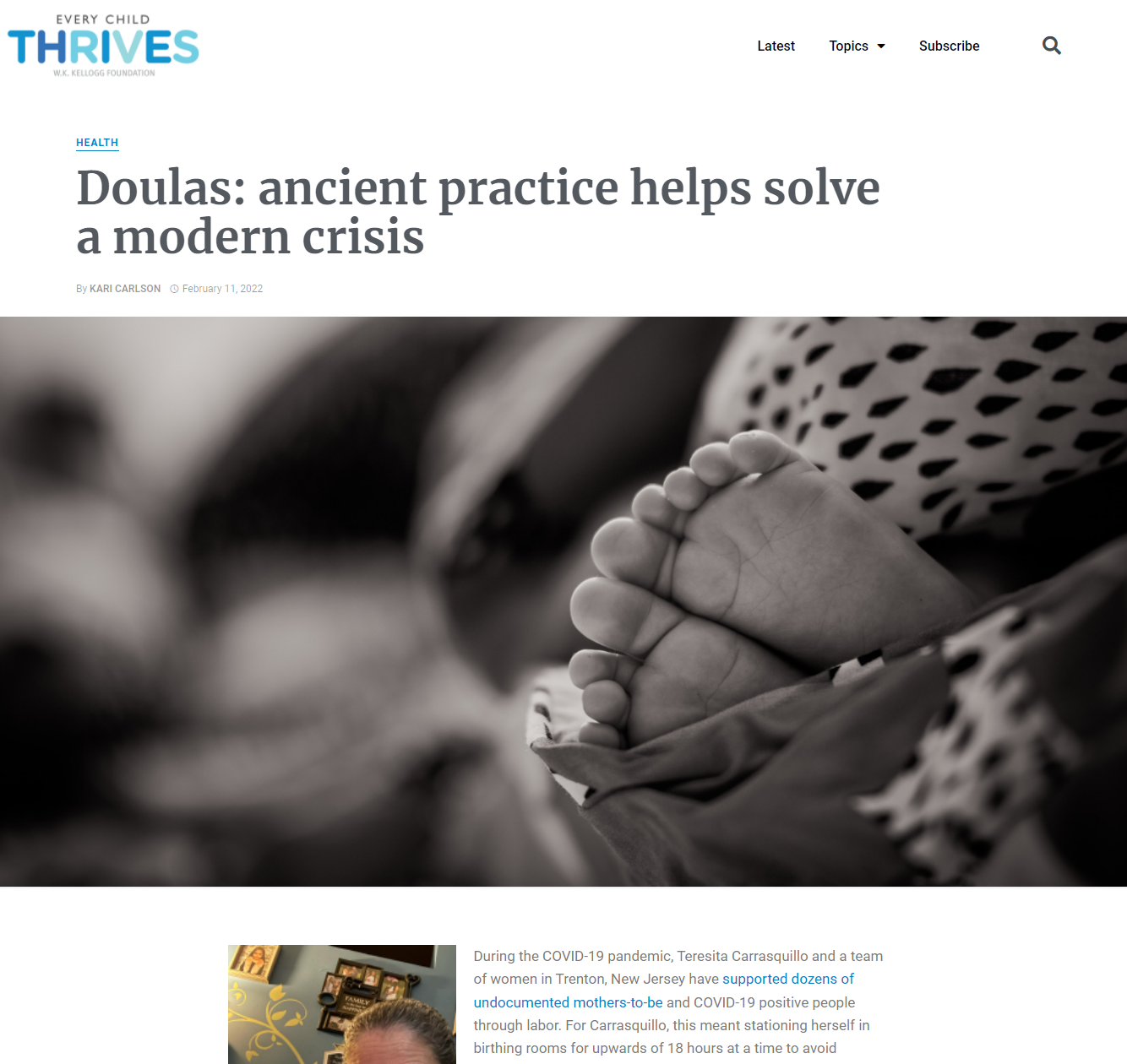
Doulas: ancient practice helps solve a modern crisis
Read insights from the AMAR team in this article, “Doulas: ancient practice helps solve a modern crisis,” in W.K. Kellogg Foundation’s Every Child Thrives series, which shares the real-life experiences and knowledge of communities mobilizing for a brighter and equitable future.
Program in Action
